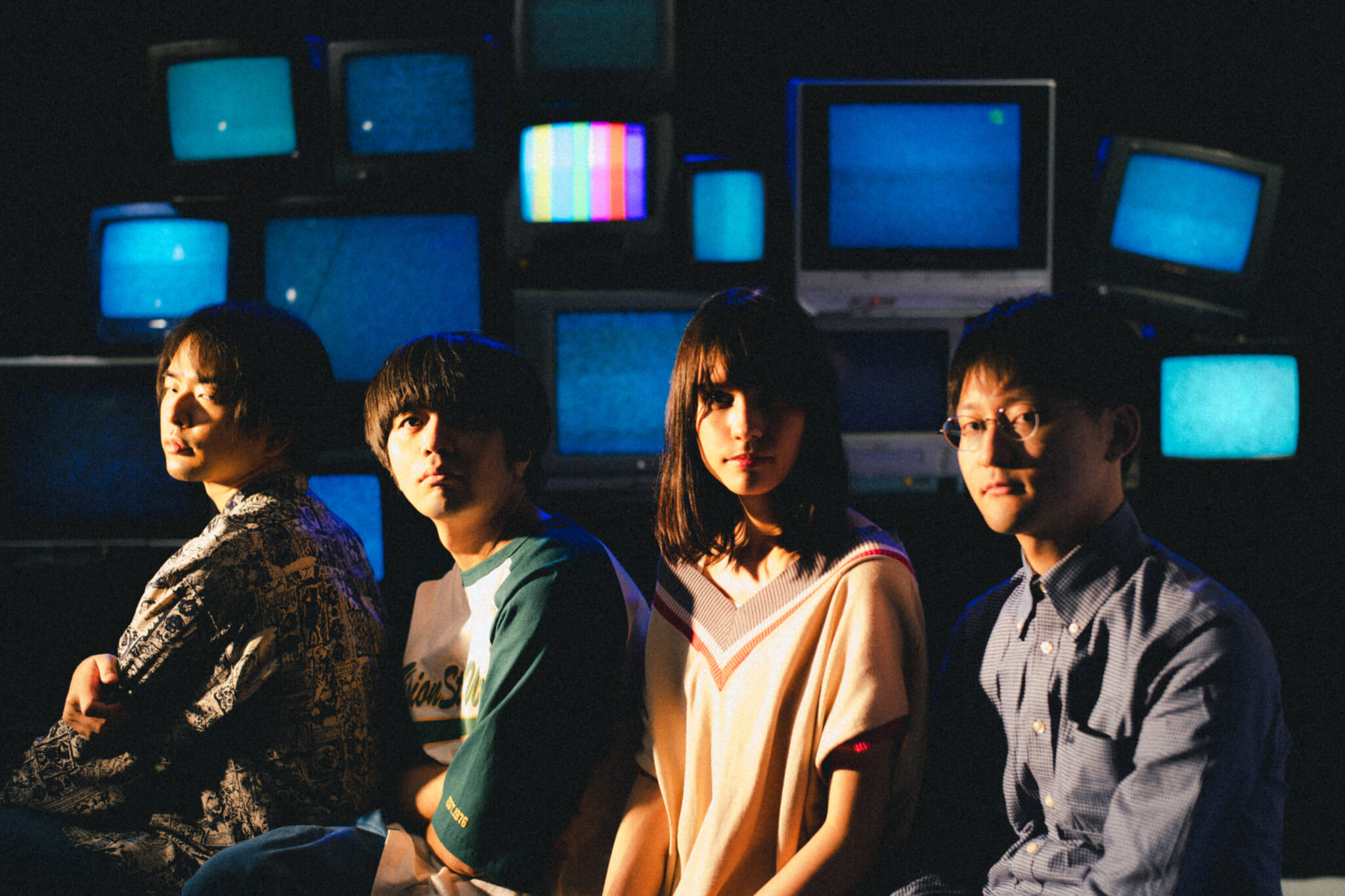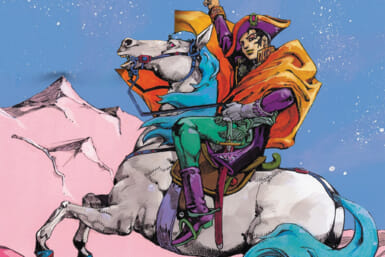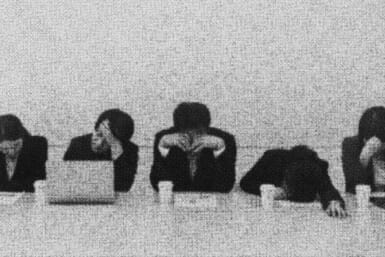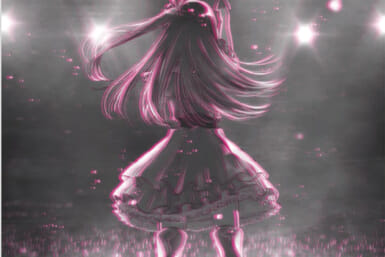At the crossfade of the 1980s and 90s, a generation of youths in parkas and greasy center-partings were ushered into the “sonic cathedral” and baptized by the shoegaze sounds of My Bloody Valentine, Ride and Slowdive, as well as a host of other reverb-drenched dream-pop cherubim. Despite attracting acres of coverage in the then-all-important music press, the nascent genre’s original loud-but-languid day in the sun was always destined to be ephemeral.
When the naughty national knees-up of Britpop arrived, however, it smashed everything, including the actual pop charts in its wake and the chances of shoegaze convincingly seeing in the new millennium looked vanishingly small.
All of which make it a delightful surprise that, in 2023, the genre seems to be in the rudest of health, with eager practitioners from all four corners of the globe finding new and interesting ways of stomping on their fuzzboxes. In Japan, great bands like Luby Sparks, Oeil, Clams, and until very recently, For Tracy Hyde, have taken up the mantle, each helping to keep the genre alive, and giving compelling reasons for its continued existence in the 21st century.

Eureka by Renzo Masuda
For Tracy Hyde
From the youthfully bright-eyed indie-pop of their debut Film Bleu to the invitingly complex shoegaze sounds of their final album Hotel Insomnia, Tokyo’s ambitiously expansive dreamers For Tracy Hyde were never afraid to add or subtract influences en route, honing and perfecting their music as they grew, in an admirably eccentric and self-determined fashion. Having become themselves so convincingly in a career lasting just over a decade, earlier this year they decided to call it a day. This leaves a series of progress reports in the form of their five distinct but instantly recognizable albums, and absolutely no disappointments, except for the fact that we won’t be hearing from them again.
Acknowledging Ancestors
Something more than a love for, and more akin to a belief in, the life-giving powers of guitar-pop, pervades 2016’s charming and occasionally fragile Film Bleu, giving the songs a youthful but nostalgic quality that is recognizably the work of enthusiasts, keen to take their part and make their mark. The band almost immediately showed their hand by calling the second song on the album, “Her Sarah Records Collection,” in an endearingly unabashed act of ancestor-acknowledgement.
On that song and across much of the LP, For Tracy Hyde replicate the melancholy autumnal jangle which was the late ’80s stock-in-trade of the titular label, while incorporating other, often U.K. specific, indie signifiers, such as “Funky Drummer” influenced baggy beats and galloping guitar patterns familiar from the work of bands like The Wedding Present and Thousand Yard Stare.
2017’s he(r)art represents a leap into new and rather different territory. The album can probably be understood in relation to Film Bleu, as a boundary-pushing search for an identity that was less reliant on well-worn record collections. There is a glossy deep blue finish to the production, and an after-dark atmosphere that incorporates trip-hop beats and lonely-dance-floor synths, as well as, on occasion, a more distinctly Japanese ’90s sound that resembles the work of acts like Buffalo Daughter or Cornelius.
Songs like “Echo Park” and “Underwater Girl,” utilize the glassy rippling guitar-lines that are the hallmarks of a modern DIIV-influenced dream-pop sound, but a more classic shoegaze inheritance can be found on the Ride-like opening chords of “Ghost Town Polaroids.” The decidedly night-time feeling of the record is a departure from the more ambiguously twilit atmosphere of hope and resignation that pervades their other releases.
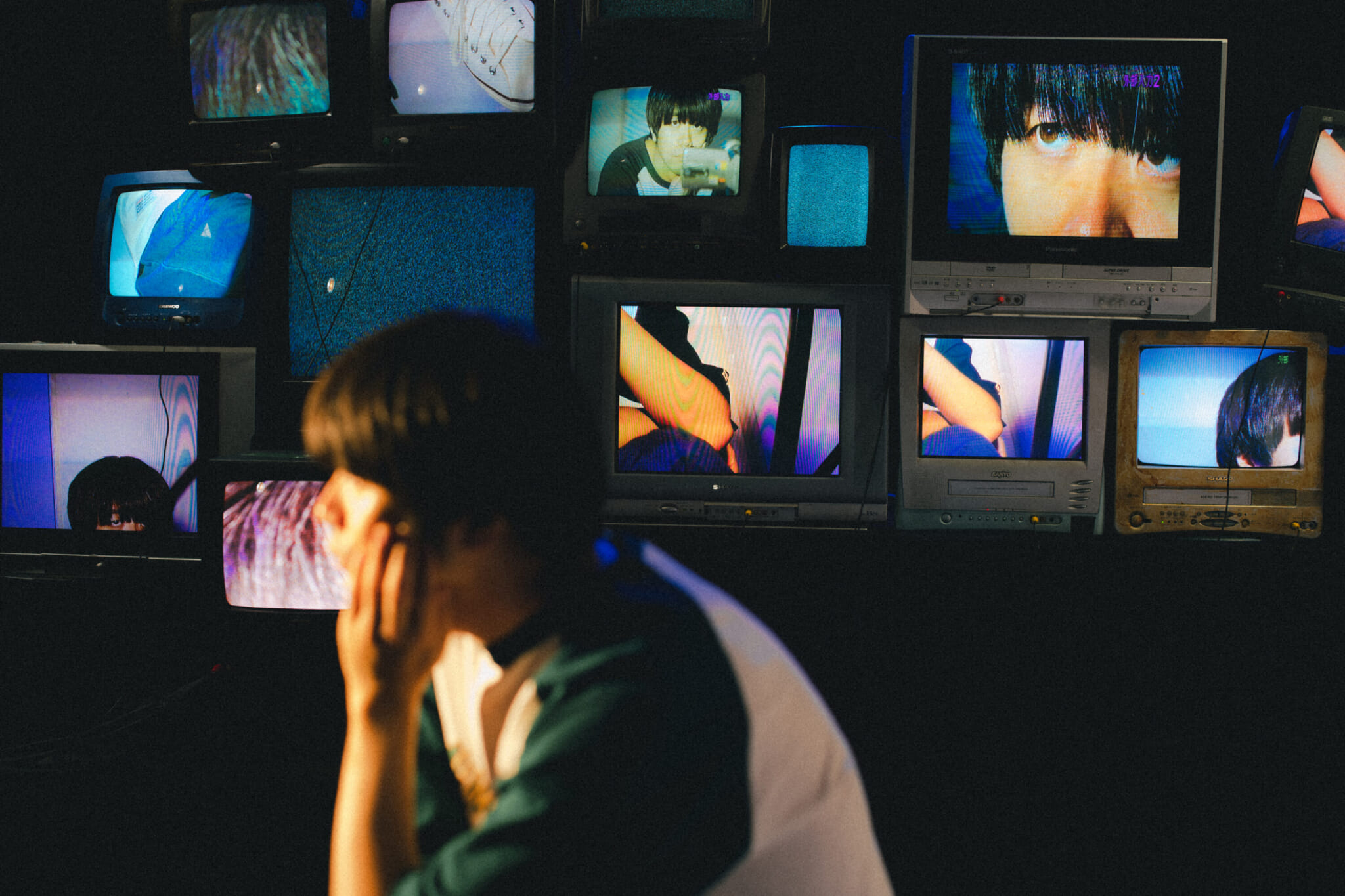
Natsubot by Renzo Masuda
New-Found Confidence
With 2019’s New Young City and 2021’s Ethernity, the band put their new-found confidence to good use, becoming discerning curators of an ever-expanding sound library, incorporating their use of a heavier shoegaze sound with a wide but well-controlled selection of pop influences.
From cleanly emotive Johnny Marr-style picking, to Julee Cruise-indebted ethereal twang, disparate elements are brought together and molded into a new and authoritative configuration. When combined with the wistful and soaring tunefulness of singer Eureka’s carefully constructed but instinctual-sounding J-pop melodies, this developing poise results in music with an engagingly immediate effect.
On both albums, but especially Ethernity, there is a detectable westward drift from the British indie sounds that set the band’s ball rolling, with the Nirvana-like roar of guitars on “Chewing Gum USA” and the Mazzy Star-style country-dream-pop of “City Limits” being prime examples of a burgeoning romance with the dusty rust-and-chrome glamor of American music.
A Rapturous High
From the opening whoosh of noise on “Undulate,” which is closely followed by wonky arpeggiated chords reminiscent of Blur’s “Chemical World,” 2022’s Hotel Insomnia has an air of composure and completeness that marks a band at the height of their powers. Across the almost-one-hour playing time of the LP, very few spaces are left empty. The band put their faith into a wall-of-sound dynamic that often evokes the heavy atmospherics of The Verve’s swirling debut A Storm in Heaven.
Melancholic highlights are The Beach Boys-influenced “The First Time (is the Last Time),” which feels like the first sweet clear air of autumn, and “Subway Station Revelation,” which carries itself with a falling star momentum, showering golden harmonic sparks as it goes. The album, when taken as a whole, feels like a built-to-last culmination of For Tracy Hyde’s efforts to this point.
The immersive soundscaping that makes Hotel Insomnia so inviting, was given a helping hand by the involvement of Ride’s Mark Gardener, who presumably knows a good thing when he hears it. The English shoegaze frontman mastered the album, bringing decades of sonic expertise and an ear for the all-important details that make up the whole. But the songs and the well-earned swagger they are delivered with, as well as the decision to bow out on this rapturous high, are all down to the band themselves.
Read more about Japanese music:

